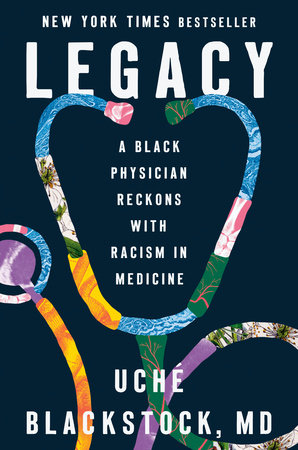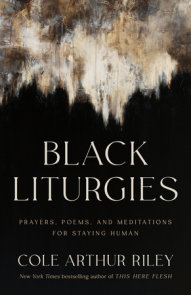READERS GUIDE
Questions for Discussion1. Uché Blackstock and her twin sister, Oni, both followed in their mother’s footsteps to become the first Black female legacy graduates of Harvard Medical School. What role do you think the idea of legacy has played in Dr. Blackstock’s life? What does legacy mean to you?
2. Dr. Blackstock writes that her mother’s patients “had experienced the care of a physician who listened to them, understood their lives and experiences, and was invested in them as a whole human being.” Do you have a trusted doctor in your life? Do you feel seen by them? Has your relationship with a physician affected how you respond to your own health?
3. Dr. Blackstock was not taught about the racism baked into the history of medicine in America. She came to learn about many of these staggering inequalities on her own as a practicing physician. As you read Legacy, did your understanding of the US health care system change?
4. Dr. Blackstock experiences burnout at Kings County hospital, where shifts were incredibly long and demanding, and the hospital was underfunded and short-staffed. Have you experienced burnout in your own life? How do you think burnout can be alleviated on both individual and institutional levels?
5. Discuss some of the ways structural inequities like systemic racism impact a person’s biological health and health outcomes. How do environmental exposures, job opportunities, and lack of access to health care influence the social determinants of health?
6. Dr. Blackstock writes about the impact mentorship can have, and the tendency people have to choose mentors who look like them. Talk about the experience you’ve had being a mentor or being mentored. Have you gravitated toward mentors who look like you?
7. Dr. Blackstock mourns not having an out-of-hospital birth. Despite her career and education, she was still not aware of the benefits of that birthing model. Were you aware of the Black maternity crisis before reading Legacy?
8. Discuss how the COVID-19 pandemic has exposed racist practices in medicine and deep preexisting racial health disparities. What role do underperforming hospitals in economically distressed communities play in these outcomes? How has the pandemic further revealed fault lines in our social institutions?
9. Dr. Blackstock does not think of her mother in terms of exceptionalism but as one of the lucky ones who made it through, and a reminder of all those who weren’t able to. How do you think it’s harmful to frame the successes of people like the original Dr. Blackstock in terms of exceptionalism?
10. Dr. Blackstock left academic medicine to become a full-time health equity advocate and fully use her voice to speak out about racial injustice. Which call to action enumerated in chapter 15 resonates the most with you? Do you feel more galvanized to work toward dismantling racism in medicine? What will you do?




















